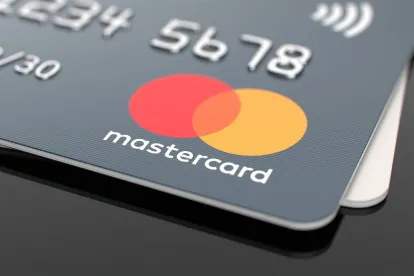Whether they’re paying legal fees or making regular purchases, clients want security, convenience, and flexibility. This isn’t limited to paying utility bills or shopping online, clients want the same seamless payment experience when paying for legal services.
Law firms that still haven’t adopted online payments risk being overlooked by law firms with more modern processes that meet the demands of clients. If you’re looking for ways to remain competitive, modernize your practices, and get paid faster — continue reading to learn more about online payment methods for law firms and how you can implement them with legal billing software.
Are Law Firms Allowed to Accept Online Payments?
Clients want the convenience of paying online and having different payment method options to cover legal bills. Law firms are allowed to accept online payments, but it’s not as simple as setting up an online point-of-sale system. There are practical and ethical considerations for lawyers to accept online payments.
Ethical Considerations for Online Payments
Credit card payments have been common practice for clients to pay legal fees for decades, but it’s traditionally been in person. The ethics are also complex, since there are different ethical considerations for accepting credit cards in person vs. online, and it can vary by location.
One of the limitations is that clients can use credit cards in different ways, such as paying their legal fees, reimbursing a firm for expenses, or putting funds into a trust account, all of which have different ethics according to state committees.
Four states permit law firms to accept credit card payments for all these scenarios, but eight states prohibit credit card surcharges to clients.
Depending on your state’s ethics, you must consider whether:
-
You can accept payment for legal fees by credit card
-
You can accept advance fee payments by credit card
-
The surcharge can be passed to the client
-
Recurring charges are permitted if payment information is on file
There are additional ethical considerations for fee payment by online payment methods like Apple Pay, Google Pay, or PayPal. In these instances, you may be able to collect fee payments, but retainers may not be permitted.
It’s important to review and abide by your state’s rules regarding credit card payments. These rules are always evolving, so you must check regularly. Using a legal payment solution built for law firms and lawyers is the best way to ensure compliance.
Why Should My Law Firm Accept Online Payments?
Clients are still consumers. Whether they’re purchasing products or paying for legal fees, paying online by credit card is faster and more convenient, especially when it comes to large bills like legal fees.
The ability to pay online is directly connected to client satisfaction. In a competitive market, offering online payment methods and making your client’s life easier could mean the difference between them sticking with your firm or going to a competitor.
There are benefits from your firm as well. Clients want to save time, but so do you. Offering online payments with law firm software helps your firm get paid faster. Instead of waiting for invoices to be sent out, the client to receive them, and then send payment, it can all be completed in a few clicks online.
4 Payment Methods Lawyers Should Accept
According to a TSYS survey, 75% of people prefer to pay with a credit or debit card, and 74% of households with internet access pay bills online. 70% also say that having multiple options to pay a bill increases their satisfaction with the biller – and law firms are no different.
Online payments offer benefits for both your client and your firm, but what payment methods should you accept? Whether you’re in a large firm or operating as a solo attorney, here are some things to consider:
-
What payment methods do your clients want?
-
What are the ethical considerations for online payments in your jurisdiction?
-
What forms of payment is your firm equipped to handle?
It’s important to remember that you can still accept payment via cash or checks. Offering credit card payments simply adds another payment option for clients and gives them more versatility in how they choose to pay.
Here are some lawyer payment methods that clients find easy and convenient:
Credit Cards
Credit cards are a great payment option because they’re familiar and often used by clients, even for everyday purchases. Clients can pay their fees quickly, easily, and securely, ensuring your firm gets paid faster.
In addition, credit cards help clients pay for big legal bills, either by splitting the payments or setting up a payment plan.
Debit Cards
Along with credit cards, clients often pay for regular purchases with their debit card rather than cash or a check. They’re also convenient and efficient for clients to cover large bills instead of dealing with a lot of cash.
If you have to set up a payment plan, debit cards are also convenient for ensuring the regular bills are paid.
eCheck
eChecks, or automated clearing house (ACH) payments are a digital version of a traditional paper check. They transfer funds electronically from the client’s checking account, allowing them to pay their bills directly only instead of writing a paper check and mailing or dropping it off.
Payment Plans
Payment plans are an excellent way to increase revenue by allowing you to take on clients who may otherwise be unable to afford legal services. The flexibility of having payment plan options also enhances the client experience, leading to better reviews and more referrals.
Modernize Your Law Firm
Payments are a key part of the client-lawyer relationship and a law firm’s cash flow. If you want to deliver the best possible experience for clients – and get paid faster – embracing online payments with legal practice management software is essential.




 />i
/>i

